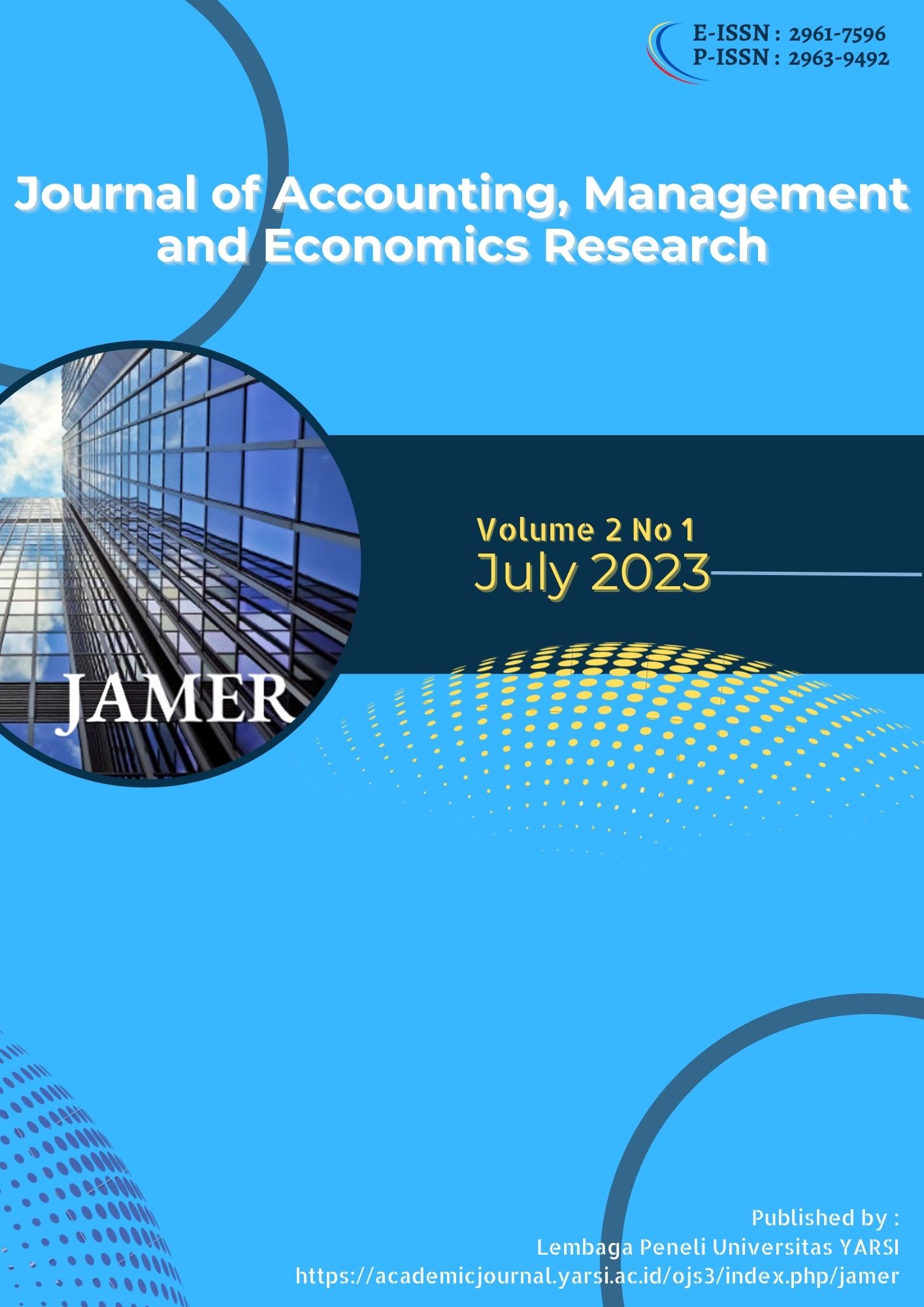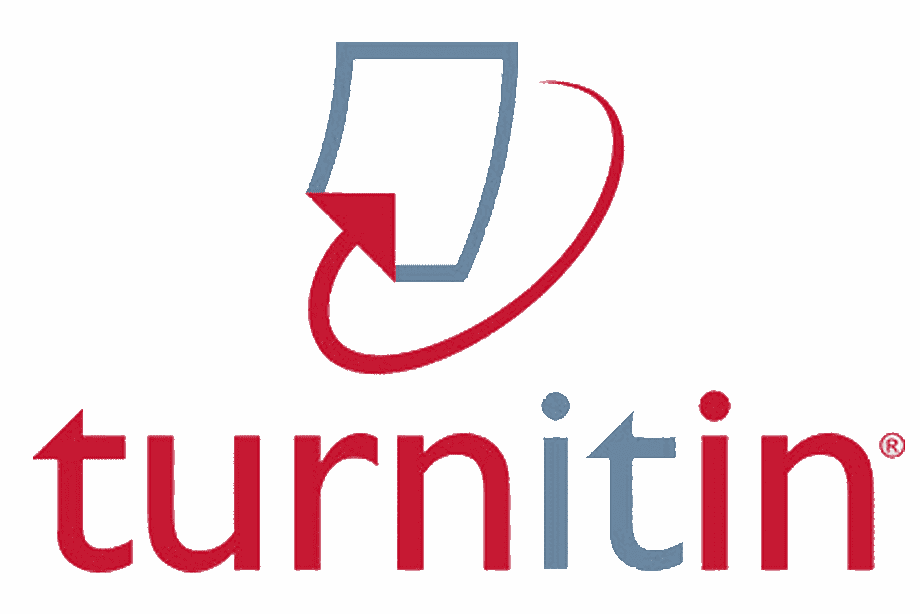Pengaruh Lingkungan Kerja terhadap Work Engagement Melalui Motivasi Intrinsik Dosen
Keywords:
Lingkungan kerja, motivasi intrinsik, work engagementAbstract
Penelitian ini bertujuan mengetahui seberapa besar lingkungan kerja berdampak terhadap work engagement melalui motivasi intrinsik. Sampel penelitian berjumlah 73 orang dosen. Pengambilan sampel dilakukan di Indonesia melalui purposive sampling dengan kriteria yaitu dosen. Data dianalisa menggunakan PLS-SEM. Hasil penelitian menemukan bahwa lingkungan kerja berpengaruh positif signifikan terhadap motivasi intrinsik dan juga work engagement. Motivasi intrinsik ditemukan memediasi pengaruh lingkungan kerja terhadap work engagement. Penelitian ini berkontribusi pada peningkatan work engagement melalui motivasi intrinsik dan lingkungan kerja pada dosen di program studi terakreditasi Baik Sekali di Indonesia.
References
Aboramadan, M., Albashiti, B., Alharazin, H., & Dahleez, K. A. (2020). Human resources management practices and organizational commitment in higher education: The mediating role of work engagement. International Journal of Educational Management, 34(1), 154–174. https://doi.org/10.1108/IJEM-04-2019-0160
Abu-Shamaa, R., Al-Rabayah, W. A., & Khasawneh, R. T. (2021). The Effect of Job Satisfaction on Organizational Commitment and Work Discipline. Budapest International Research and Critics Institute (BIRCI-Journal): Humanities and Social Sciences, 4(1), 1328–1339. https://doi.org/10.33258/birci.v4i1.1759
Agarwal, U. A. (2014). Linking justice, trust and innovative work behaviour to work engagement. Personnel Review, 43(1), 41–73. https://doi.org/10.1108/PR-02-2012-0019
Ambarsari, V. R., Khuzaini, & Prijati. (2021). Employee engagement memediasi pengaruh dukungan organisasi, lingkungan kerja terhadap kinerja karyawan. Inovasi, 17(2), 239–247. https://doi.org/10.30872/jinv.v17i2.9247
Anitha, J. (2014). Determinants of employee engagement and their impact on employee performance. International Journal of Productivity and Performance Management, 63(3), 308–323. https://doi.org/10.1108/IJPPM-01-2013-0008
Antony. (2019). Pengaruh Lingkungan Kerja, Kepemimpinan, Kompensasi dan Pelatihan Kerja pada Keterikatan Karyawan Hotel Berbintang 4 di Batam. Jesya (Jurnal Ekonomi & Ekonomi Syariah), 2(1), 96–107. https://doi.org/10.36778/jesya.v2i1.34
Arifin, Z., Nirwanto, N., & Manan, A. (2019). Analysis of bullying effects on job performance using employee engagement and job satisfaction as mediation. International Journal of Innovation, Creativity and Change, 9(6), 42–56. https://www.ijicc.net/images/vol9iss6/9603_Arifin_E_R.pdf
Asri, D. H., & Fangestu, L. (2022). SEIKO : Journal of Management & Business Analisis Pengaruh Organizational Culture , Job Satisfaction , Commitment Terhadap Employee Engagement Dengan Motivation Sebagai Mediasi Pada Hotel Berbintang Empat di Kota Batam. 5(2), 560–571. https://doi.org/10.37531/sejaman.v5i2.2702
Bakar, A., Hameed, A., Ali, A., & Imran, M. (2019). The Impact of Extrinsic and Intrinsic Motivation on Employee Engagement: An Empirical Study of Health Care Sector of Punjab, Pakistan. Review of Applied Management and Social Sciences, 2(2), 95–106. https://doi.org/10.47067/ramss.v2i2.18
Bakker, A. B., & Demerouti, E. (2014). Job Demands-Resources Theory. Wellbeing, III, 1–28. https://doi.org/10.1002/9781118539415.wbwell019
Borst, R. T., Kruyen, P. M., & Lako, C. J. (2017). Exploring the Job Demands–Resources Model of Work Engagement in Government: Bringing in a Psychological Perspective. Review of Public Personnel Administration, 39(3), 372–397. https://doi.org/10.1177/0734371X17729870
Bukhari, S. G. A. S., Jamali, S. G., Larik, A. R., & Chang, M. S. (2023). Fostering intrinsic motivation among teachers: Importance of work environment and individual differences. International Journal of School & Educational Psychology, 11(1), 1–19. https://doi.org/10.1080/21683603.2021.1925182
Carlopio, J. R. (1996). Construct validity of a Physical Work Environment Satisfaction Questionnaire. Journal of Occupational Health Psychology, 1(3), 330–344. https://doi.org/10.1037/1076-8998.1.3.330
Cesário, F., & Chambel, M. J. (2017). Linking Organizational Commitment and Work Engagement to Employee Performance. Knowledge and Process Management, 24(2), 152–158. https://doi.org/10.1002/kpm.1542
Coffeng, J. K., Hendriksen, I. J. M., Duijts, S. F. A., Twisk, J. W. R., van Mechelen, W., & Boot, C. R. L. (2014). Effectiveness of a combined social and physical environmental intervention on presenteeism, absenteeism, work performance, and work engagement in office employees. Journal of Occupational and Environmental Medicine, 56(3), 258–265. https://doi.org/10.1097/JOM.0000000000000116
De Spiegelaere, S., Van Gyes, G., De Witte, H., Niesen, W., & Van Hootegem, G. (2014). On the relation of job insecurity, job autonomy, innovative work behaviour and the mediating effect of work engagement. Creativity and Innovation Management, 23(3), 318–330. https://doi.org/10.1111/caim.12079
Farid, T., Iqbal, S., Ma, J., Castro-González, S., Khattak, A., & Khan, M. K. (2019). Employees’ perceptions of CSR, work engagement, and organizational citizenship behavior: The mediating effects of organizational justice. International Journal of Environmental Research and Public Health, 16(10). https://doi.org/10.3390/ijerph16101731
Fernet, C., Trépanier, S. G., Austin, S., Gagné, M., & Forest, J. (2015). Transformational leadership and optimal functioning at work: On the mediating role of employees’ perceived job characteristics and motivation. Work and Stress, 29(1), 11–31. https://doi.org/10.1080/02678373.2014.1003998
Firnanda, D. Y., & Wijayati, D. T. (2021). Pengaruh Perceived Organizational Support, Self Efficacy dan Lingkungan Kerja terhadap Employee Engagement Karyawan PT. Pesona Arnos Beton. Jurnal Ilmu Manajemen, 9(3), 1076–1091. https://doi.org/10.26740/jim.v9n3.p1076-1091
Fishbach, A., & Woolley, K. (2022). The Structure of Intrinsic Motivation. Annual Review of Organizational Psychology and Organizational Behavior, 9, 339–363. https://doi.org/10.1146/annurev-orgpsych-012420-091122
Gagné, M., Forest, J., Vansteenkiste, M., Crevier-Braud, L., van den Broeck, A., Aspeli, A. K., Bellerose, J., Benabou, C., Chemolli, E., Güntert, S. T., Halvari, H., Indiyastuti, D. L., Johnson, P. A., Molstad, M. H., Naudin, M., Ndao, A., Olafsen, A. H., Roussel, P., Wang, Z., & Westbye, C. (2015). The Multidimensional Work Motivation Scale: Validation evidence in seven languages and nine countries. European Journal of Work and Organizational Psychology, 24(2), 178–196. https://doi.org/10.1080/1359432X.2013.877892
Gupta, M., Shaheen, M., & Reddy, P. K. (2017). Impact of psychological capital on organizational citizenship behavior: Mediation by work engagement. Journal of Management Development, 36(7), 973–983. https://doi.org/10.1108/JMD-06-2016-0084
Hennessey, B., Moran, S., & Amabile, T. M. (2014). extrinsic and intrinsic motivation Beth Hennessey, Seana Moran, Beth Altringer, and Teresa M. Amabile. Wiley Encyclopedia of Management. https://doi.org/10.1002/9781118785317.weom110098
Insan, A. N. (2017). Pengaruh Kepemimpinan Transaksional terhadap Motivasi Intrinsik, Work Engagement dan Kinerja Karyawan. Jurnal of Business Studies, 2(1), 1–18. http://journal.uta45jakarta.ac.id/index.php/jbsuta/article/view/782
Karatepe, O. M. (2013). High-performance work practices, work social support and their effects on job embeddedness and turnover intentions. International Journal of Contemporary Hospitality Management, 25(6), 903–921. https://doi.org/10.1108/IJCHM-06-2012-0097
Kim, M., & Jang, J. (2022). The effect of physical environment of the employee break room on psychological well-being through work engagement in the hospitality industry. Journal of Human Resources in Hospitality and Tourism, 21(2), 175–196. https://doi.org/10.1080/15332845.2022.2031606
Kristiana, I. F., Fajrianthi, F., & Purwono, U. (2019). Analisis Rasch Dalam Utrecht Work Engagement Scale-9 (Uwes-9) Versi Bahasa Indonesia. Jurnal Psikologi, 17(2), 204. https://doi.org/10.14710/jp.17.2.204-217
Lazauskaite-Zabielske, J., Urbanaviciute, I., & Rekasiute Balsiene, R. (2018). From psychosocial working environment to good performance: the role of work engagement. Baltic Journal of Management, 13(2), 236–249. https://doi.org/10.1108/BJM-10-2017-0317
Lesener, T., Gusy, B., & Wolter, C. (2019). The job demands-resources model: A meta-analytic review of longitudinal studies. Work and Stress, 33(1), 76–103. https://doi.org/10.1080/02678373.2018.1529065
Li, B., Li, Z., & Wan, Q. (2019). Effects of work practice environment, work engagement and work pressure on turnover intention among community health nurses: Mediated moderation model. Journal of Advanced Nursing, 75(12), 3485–3494. https://doi.org/10.1111/jan.14130
Maricuțoiu, L. P., Sulea, C., & Iancu, A. (2017). Work engagement or burnout: Which comes first? A meta-analysis of longitudinal evidence. Burnout Research, 5(2010), 35–43. https://doi.org/10.1016/j.burn.2017.05.001
Memon, M. A., Salleh, R., & Baharom, M. N. R. (2016). The link between training satisfaction, work engagement and turnover intention. European Journal of Training and Development, 40(6), 407–429. https://doi.org/10.1108/EJTD-10-2015-0077
Miao, S., Rhee, J., & Jun, I. (2020). How much does extrinsic motivation or intrinsic motivation affect job engagement or turnover intention? A comparison study in China. Sustainability (Switzerland), 12(9). https://doi.org/10.3390/su12093630
Muchtadin, M. (2022). Hubungan antara Work Engagement dengan Turnover Intention pada Pekerja Generasi Milenial di Jabodetabek. Jurnal Psikologi Teori Dan Terapan, 13(3), 377–391. https://doi.org/10.26740/jptt.v13n3.p377-391
Muchtadin, & Sundary, Z. E. (2023). The Connection Between Work Motivation and Work Stress with Work Engagement for Bakti Timah Medika Employees. Jurnal Psikologi Teori Dan Terapan, 14(2), 161–173. https://doi.org/https://doi.org/10.26740/jptt.v14n2.p161-173
Natalia, J., & Rosiana, E. (2017). Analisa Pengaruh Employee Engagement Terhadap Kinerja Karyawan dan Turnover Intention di Hotel D’Season Surabaya. Jurnal Hospitality Dan Manajemen Jasa, 5(2), 93–105. https://publication.petra.ac.id/index.php/manajemen-perhotelan/article/view/5941
Paramitha, A., & Indarti, N. (2014). Impact of the Environment Support on Creativity: Assessing the Mediating Role of Intrinsic Motivation. Procedia - Social and Behavioral Sciences, 115(Iicies 2013), 102–114. https://doi.org/10.1016/j.sbspro.2014.02.419
Pratame, K. A. B. P., & Suana, I. W. (2020). Lingkungan Kerja Non Fisik Berpengaruh Terhadap Motivasi Intrinsik Dan Kepuasan Kerja Karyawan. E-Jurnal Manajemen Universitas Udayana, 9(7), 2536. https://doi.org/10.24843/ejmunud.2020.v09.i07.p04
Puspita, A. (2020). Pengaruh Budaya Organisasi, Pengembangan Karir, dan Kompensasi terhadap Employee Engagement di PT. Bank X, Tbk. Indikator, 4(1). https://publikasi.mercubuana.ac.id/index.php/indikator/article/view/8408
Putra, E. D., Cho, S., & Liu, J. (2017). Extrinsic and intrinsic motivation on work engagement in the hospitality industry: Test of motivation crowding theory. Tourism and Hospitality Research, 17(2), 228–241. https://doi.org/10.1177/1467358415613393
Rahmawati, I., Sa’adah, L., & Chabib, M. N. (2020). Karakteristik Individu dan Lingkungan Kerja serta Pengaruhnya terhadap Kepuasan Kerja Karyawan. LPPM Universitas KH. A. Wahab Hasbullah.
Rasool, S. F., Wang, M., Tang, M., Saeed, A., & Iqbal, J. (2021). How toxic workplace environment effects the employee engagement: The mediating role of organizational support and employee wellbeing. International Journal of Environmental Research and Public Health, 18(5), 1–17. https://doi.org/10.3390/ijerph18052294
Riyanto, S., Ariyanto, E., & Lukertina, L. (2019). Work Life Balance and Its Influence on Employee Engagement “Y” Generation in Courier Service Industry. International Review of Management and Marketing, 9(6), 25–31. https://doi.org/10.32479/irmm.8499
Riyanto, S., Endri, E., & Herlisha, N. (2021). Effect of work motivation and job satisfaction on employee performance: Mediating role of employee engagement. Problems and Perspectives in Management, 19(3), 162–174. https://doi.org/10.21511/ppm.19(3).2021.14
Ryan, R. M., & Deci, E. L. (2020). Intrinsic and extrinsic motivation from a self-determination theory perspective: Definitions, theory, practices, and future directions. Contemporary Educational Psychology, 61(April). https://doi.org/10.1016/j.cedpsych.2020.101860
Saleem, Z., Shenbei, Z., & Hanif, A. M. (2020). Workplace Violence and Employee Engagement: The Mediating Role of Work Environment and Organizational Culture. SAGE Open, 10(2). https://doi.org/10.1177/2158244020935885
Sartono, H., & Ardhani, M. (2015). Work Engagement, Intrinsic Motivation and Job Satisfaction among Employees of A Coal Mining Company in South Borneo. International Research Journal of Business Studies, 8(2), 107–122. https://doi.org/10.21632/irjbs.8.2.107-122
Schaufeli, W. B. (2017). Applying the Job Demands-Resources model: A ‘how to’ guide to measuring and tackling work engagement and burnout. Organizational Dynamics, 46(2), 120–132. https://doi.org/10.1016/j.orgdyn.2017.04.008
Sentosa, I. M. H., & Riasa, I. G. (2018). Pengaruh Lingkungan Kerja Non Fisik Terhadap Motivasi Intrinsik dan Kepuasan Kerja di DInas Pendapatan Daerah Badung. E-Jurnal Manajemen Unud, 7(8), 4417–4446. https://doi.org/10.24843/EJMUNUD.2018.v07.i08.p14
Setiyani, A., Djumarno, D., Riyanto, S., & Nawangsari, L. C. (2019). the Effect of Work Environment on Flexible Working Hours, Employee Engagement and Employee Motivation. International Review of Management and Marketing, 9(3), 112–116. https://doi.org/10.32479/irmm.8114
Silitonga, P. E. S. (2020). Peningkatan kinerja SDM melalui motivasi, kepemimpinan, komitmen, dan lingkungan kerja. Penebar Media Pustaka.
Spreitzer, G. M. (1995). Psychological Empowerment in the Workplace: Dimensions , Measurement , and Validation Author ( s ): Gretchen M . Spreitzer Source : The Academy of Management Journal , Vol . 38 , No . 5 ( Oct ., 1995 ), pp . 1442-1465 Published by : Academy of Management. Academy of Management Journal, 38(5), 1442–1465. https://doi.org/10.5465/256865
Teo, S. T. T., Bentley, T., & Nguyen, D. (2020). Psychosocial work environment, work engagement, and employee commitment: A moderated, mediation model. International Journal of Hospitality Management, 88(November), 102415. https://doi.org/10.1016/j.ijhm.2019.102415
Trisninawati, & Elpanso, E. (2021). Pengaruh Motivasi Kerja dan Lingkungan Kerja terhadap Kinerja karyawan outsourcing di mediasi Employee engagement. Journal Management, Business, and Accounting, 20(3), 275–284. https://doi.org/https://doi.org/10.33557/mbia.v20i3.1616
Wan, Q., Li, Z., Zhou, W., & Shang, S. (2018). Effects of work environment and job characteristics on the turnover intention of experienced nurses: The mediating role of work engagement. Journal of Advanced Nursing, 74(6), 1332–1341. https://doi.org/10.1111/jan.13528
Downloads
Published
How to Cite
Issue
Section
License
Copyright (c) 2023 muchtadin

This work is licensed under a Creative Commons Attribution-ShareAlike 4.0 International License.

This work is licensed under a CC Attribution-ShareAlike 4.0 International License

 muchtadin
muchtadin
 Universitas YPPI Rembang
Universitas YPPI Rembang







